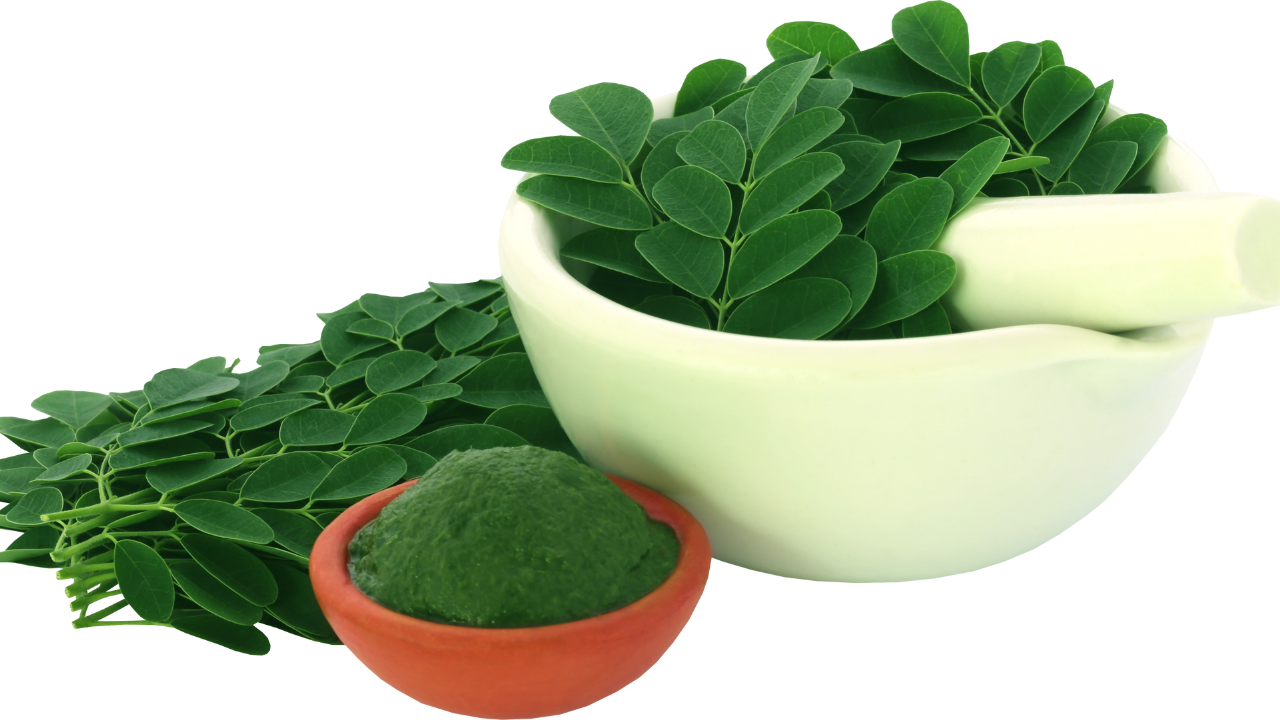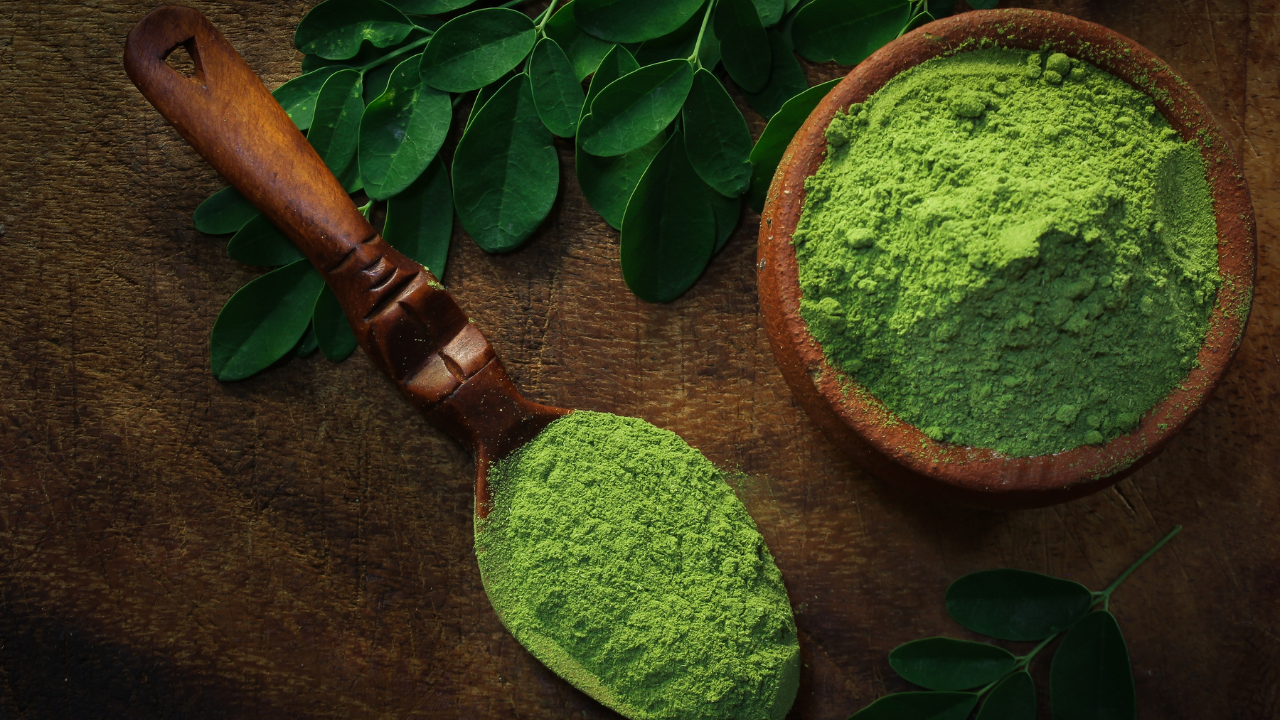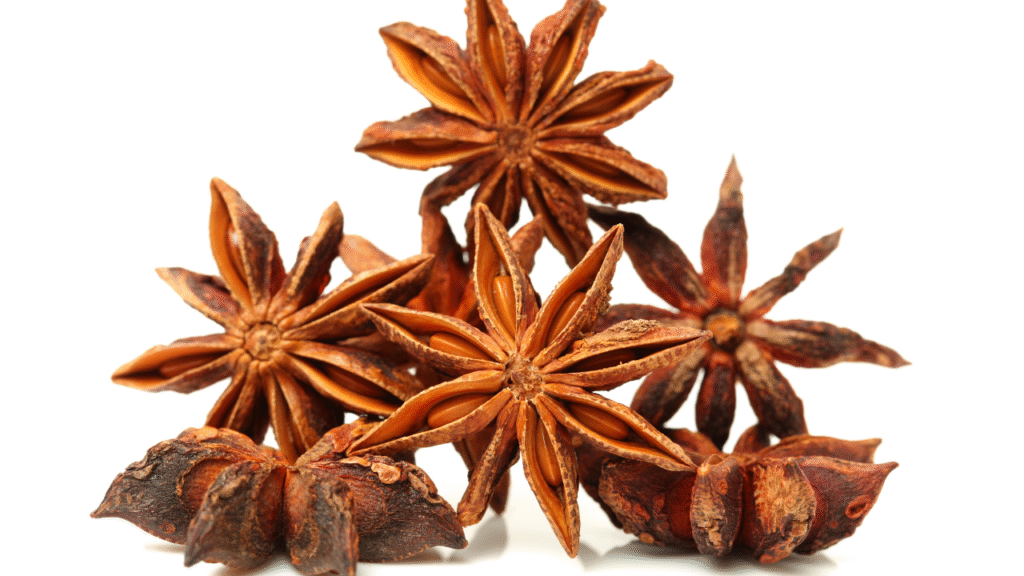

Moringa, often called the “miracle tree,” has gained widespread recognition for its remarkable health benefits. This nutrient-dense plant, native to South Asia, has been used for centuries in traditional medicine due to its diverse array of vitamins, minerals, antioxidants, and bioactive compounds. From boosting immunity and managing diabetes to supporting heart health and improving skin complexion, moringa offers a range of impressive advantages. {1}
Here are 20 Amazing Health Benefits of Moringa You Should Know
1. Antimicrobial Properties.
Moringa possesses remarkable antimicrobial properties, which can inhibit the growth of microorganisms such as bacteria, viruses, and fungi. These antimicrobial properties are attributed to bioactive compounds like flavonoids, alkaloids, and phenolic acids in moringa leaves, seeds, and oil.
2. Alleviates Anemia.
Moringa has been recognized for its potential to alleviate anemia, characterized by a deficiency of red blood cells or hemoglobin. Anemia can lead to symptoms such as fatigue, weakness, and shortness of breath. Moringa is a rich source of iron, a vital mineral involved in the production of red blood cells.
3. Supports Hormonal Balance.
Moringa has been suggested to support hormonal balance, particularly in women. It contains compounds with phytoestrogenic properties, which mimic the action of estrogen in the body, potentially helping to balance hormonal levels. Additionally, the rich nutrient profile of moringa, including vitamins, minerals, and antioxidants, supports the proper functioning of glands involved in hormone production.
4. Regulates Blood Pressure.
Moringa has been recognized for its potential to regulate blood pressure. It contains high potassium levels, a mineral that helps balance the body’s fluids and electrolytes, which can contribute to maintaining healthy blood pressure levels. Additionally, certain compounds found in moringa have been shown to promote vasodilation, the widening of blood vessels, which can enhance blood flow and lower blood pressure.
5. Anti-cancer Properties.
Moringa exhibits potential anti-cancer properties that have been the subject of scientific research. Various studies have explored the bioactive compounds present in moringa, such as flavonoids, phenolic acids, and glucosinolates, which have demonstrated anti-cancer effects. These compounds have been found to possess antioxidant, anti-inflammatory, and anti-proliferative properties, inhibiting the growth and spread of cancer cells.
6. Reduces Asthma Symptoms.
Moringa’s anti-inflammatory properties have shown promise in reducing asthma symptoms. Asthma is characterized by inflammation and constriction of the airways, leading to symptoms such as wheezing, coughing, and shortness of breath. Moringa’s anti-inflammatory compounds, such as flavonoids and phenolic acids, may help alleviate inflammation in the airways, thereby reducing the severity of asthma symptoms.
7. Supports Bone Health.
Moringa supports bone health by providing essential nutrients for maintaining strong and healthy bones. It is a rich source of calcium, magnesium, phosphorus, and vitamins C and K, all of which play vital roles in bone formation, mineralization, and overall bone density. Calcium is essential for bone strength, while magnesium and phosphorus contribute to mineralization.
8. Improves Eye Health.
Due to its rich nutritional profile and specific compounds, moringa offers potential benefits in improving eye health. It is a good source of vitamin A, essential for maintaining good vision and preventing conditions such as night blindness. Moringa also contains antioxidants like zeaxanthin and lutein, which support eye health by filtering harmful blue light and protecting the retina from oxidative stress.
9. Protects Liver Health.
Moringa has been recognized for its potential to protect liver health and support its proper functioning. The liver plays a vital role in detoxification, metabolism, and overall health. Moringa contains compounds such as polyphenols and flavonoids, which have antioxidant and anti-inflammatory properties.
10. Promotes Weight Loss:
Moringa has been suggested to promote weight loss for several reasons. First, its leaves are low in calories and rich in fiber, which can help create a feeling of fullness and reduce calorie intake. The fiber also aids digestion and prevents constipation, promoting a healthy digestive system.
11. Boosts Energy Levels.
Moringa is known to boost energy levels due to its nutrient-rich composition. It is a natural source of essential nutrients, including vitamins, minerals, and antioxidants, crucial in energy production and metabolism. It contains B vitamins, such as B1 (thiamine), B2 (riboflavin), and B6 (pyridoxine), which are involved in converting food into energy and supporting the function of the nervous system.
12. Supports Brain Health.
Moringa has been associated with supporting brain health and cognitive function. Its rich nutritional profile, including vitamins, minerals, and antioxidants, contributes to this potential benefit. It is a source of vitamins B6, B9 (folate), and B12, essential for maintaining healthy brain function and supporting neurotransmitter production.
13. Improves Skin Health.
Moringa has been recognized for its potential to improve skin health and promote a healthy complexion. It is rich in antioxidants, including vitamin C, beta-carotene, and various phenolic compounds, which help protect the skin from oxidative stress and damage caused by free radicals.
14. Enhances Digestive Health.
Moringa has been associated with enhancing digestive health due to its various properties and nutrient content. Firstly, moringa leaves and pods are rich in fiber, crucial in promoting regular bowel movements, preventing constipation, and maintaining a healthy digestive system.
15. Supports Heart Health.
Moringa has been recognized for its potential to support heart health and reduce cardiovascular disease risk. It contains several beneficial compounds, including antioxidants, polyphenols, and flavonoids, which help protect the heart against oxidative stress and inflammation.
16. Manages Diabetes.
Moringa has been studied for its potential to help manage diabetes and support blood sugar control. The plant contains compounds that may have anti-diabetic effects, such as isothiocyanates and flavonoids. These compounds have been found to improve insulin sensitivity and regulate glucose levels in the body.
17. Anti-inflammatory Properties.
Moringa possesses remarkable anti-inflammatory properties that can benefit overall health and well-being. The plant contains various bioactive compounds, such as isothiocyanates, flavonoids, and phenolic acids, which have been shown to exert anti-inflammatory effects on the body.
18. Boosts Immunity.
Moringa has been recognized for its potential to boost immunity and support overall immune system function. It is rich in various nutrients, including vitamins A, C, and E, and minerals like zinc and iron, essential in maintaining a healthy immune system.
19. Powerful Antioxidants.
Moringa contains powerful antioxidants that offer numerous health benefits. Antioxidants help protect the body against oxidative stress and damage caused by free radicals, as well as unstable molecules that can lead to chronic diseases and accelerate aging.
20. Rich in Nutrients.
It is known for its exceptional nutrient density, making it a valuable addition to a healthy diet. It contains many essential vitamins and minerals, including vitamins A, C, E, K, and B (such as thiamine, riboflavin, and niacin), calcium, magnesium, potassium, iron, and zinc.
Related: Watercress: Nutrition, Health Benefits, How to Use and Side Effects
Uses of Moringa
Moringa is a valuable plant with many uses because of what it is made of. Its seed powder can be used to clean water, and its oil is used to grow plants, make cosmetics, and make biodiesel. Moringa extracts make zeatin, which helps plants grow and gives farmers more crops. It also adds vitamins, minerals, essential amino acids, and oils to food, which makes it healthier. When Moringa powder is added to cereal porridge, it can increase the amount of vitamin A by up to 15 times.
Side Effects
Moringa is a natural, chemical-free ingredient that is safe to use on the skin. However, it could cause low blood pressure, a slower heart rate, uterine contractions, cell mutations, and problems with fertility. Moringa’s leaves, fruit, oil, and seeds have all been eaten safely for hundreds of years. Don’t take large amounts of extract, moringa root, or supplements if pregnant or breastfeeding. Chemicals that can cause contractions may be in the plant’s root, bark, and flowers. This could cause problems during pregnancy.
Conclusion
Moringa oleifera has many benefits, including antioxidants, anti-inflammatory compounds, hormone balance, digestive health, blood sugar regulation, skin protection, mood stabilization, and brain health. It is often used as a supplement. Dried leaves, tea, oil, and tincture are all common ways to use it. It has a lot of vitamins and minerals, such as vitamin C, vitamin A, potassium, calcium, and amino acids.
LINKS TO RESEARCH REFERENCES
- Research advances on the multiple uses of Moringa oleifera: A sustainable alternative for socially neglected population – ScienceDirect
- Plants | Free Full-Text | Health Benefits of Uses and Applications of Moringa oleifera in Bakery Products (mdpi.com)
- Health benefits and phenolic compounds of oleifera leaves: A comprehensive review – ScienceDirect
- Effect of supplementation of drumstick oleifera) and amaranth (Amaranthus tricolor) leaves powder on antioxidant profile and oxidative status among postmenopausal women | SpringerLink
Works Cited
- M., Poudel, and Adhikari. “Moringa oleifera: A. review article on nutritional properties and its prospect in the context of Nepal. ” Acta Sci P. Agric 3 No. 11, 2019.
- Mohamed, Ahmed, et al. Health Benefits and Phenolic Compounds of Moringa Oleifera Leaves a Comprehensive Review—phytomedicine 93, 2021.
- Paula, García, et al. Plants 10 No. 2, 2021.
- Raimunda, Sâmia Nogueira, et al. Asian Pacific Journal of Tropical Medicine 10 No. 7, 2017.
- Shahzad, MA Basra, and Ashfaq. “Moringa: a miracle plant for agro-forestry. “. J. Agric. Soc Umair. Sci 8 No. 3, 2012.






